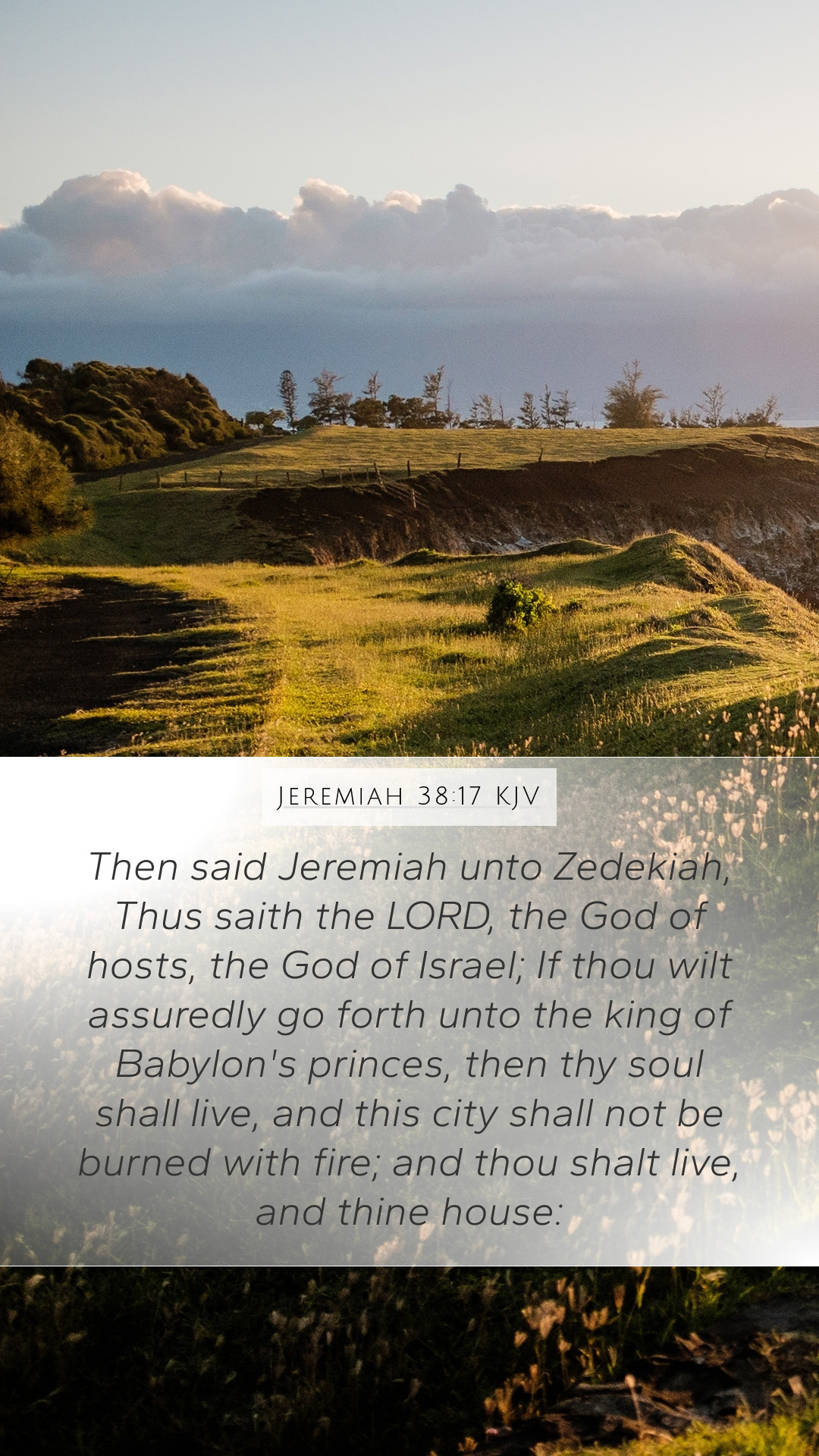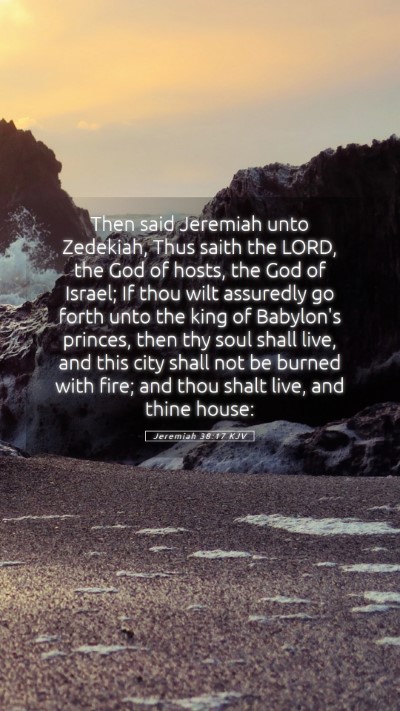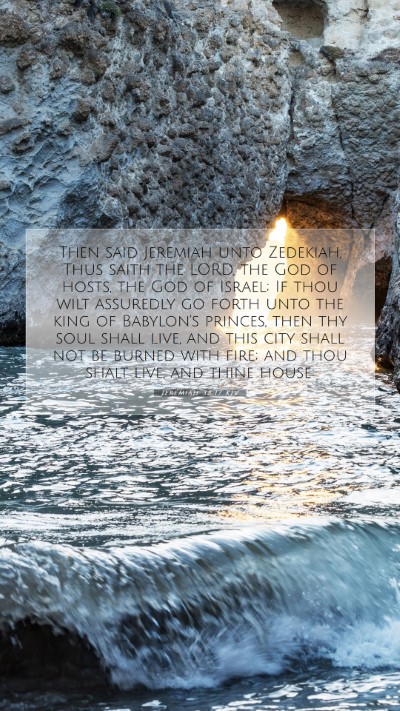Bible Verse Analysis: Jeremiah 38:17
Jeremiah 38:17 states: “Then said Jeremiah unto Zedekiah, Thus saith the LORD, the God of hosts, the God of Israel; If thou wilt assuredly go forth unto the king of Babylon's princes, then thy soul shall live, and this city shall not be burned with fire; and thou shalt live, and thine house.” This verse carries profound implications both in its historical context and in its spiritual applications.
Contextual Understanding
In order to grasp the meaning of this Bible verse, it is essential to recognize its backdrop. At this time, Jerusalem was under siege, and the prophet Jeremiah was conveying God's message to King Zedekiah. By urging the king to surrender to the Babylonian forces, Jeremiah was not merely offering a strategy for survival; he was presenting a divine ultimatum for the preservation of life and the city itself.
Insights from Public Domain Commentaries
- Matthew Henry's Commentary: Henry elaborates on the importance of obedience to God's word. He highlights that Jeremiah acts as God's mouthpiece, revealing that Zedekiah's refusal to surrender would lead to destruction. The call to surrender symbolizes an act of faith and trust in God's plan.
- Albert Barnes' Commentary: Barnes emphasizes the consequences of Zedekiah's decision. He outlines the direct connection between the king's actions and the fate of Jerusalem, suggesting that surrendering was not a sign of weakness but an act of wisdom. Barnes encourages readers to see the spiritual significance of choosing life over destruction.
- Adam Clarke's Commentary: Clarke offers a critical view of Zedekiah's leadership, noting his reluctance to heed Jeremiah's advice. He presents this moment as a pivotal decision point that illustrates the struggle between human inclination for self-preservation and divine instruction. Clarke underscores the necessity of aligning one’s will with God’s for true safety.
Theological Implications
This verse illustrates a central theme in Scripture: the importance of surrendering to God's will. The invitation for Zedekiah to go forth and yield symbolizes a broader principle applicable to all believers. Just as the king was given a choice, so too are individuals today faced with the decision to submit to divine authority or pursue their own paths.
Application to Daily Life
In understanding Scripture, particularly in Jeremiah 38:17, there is a profound teaching on the nature of human choices. This verse invites us to reflect on our own decisions and to consider whether they align with God's purpose for our lives. How can we apply the wisdom found in this scripture to our daily lives?
- Trust in God's plans: Just as Zedekiah was advised to trust in the LORD’s instructions, we are called to trust in God’s plans for our lives, even when the path seems unclear.
- Take responsibility for our choices: The consequences of our decisions bear significance; hence, engaging with God through prayer and seeking His guidance is imperative.
- Live with faith: True faith often requires bold actions, just as surrendering to the Babylonians demanded courage from Zedekiah.
Related Bible Verses
For a deeper Bible verse understanding, consider these cross-references:
- Jeremiah 27:12-17: Jeremiah’s message of surrender is reiterated.
- Proverbs 3:5-6: Trust in the LORD and lean not on your own understanding.
- Romans 12:2: The importance of not conforming to the pattern of this world but being transformed by renewing our minds.
Summary
In conclusion, Jeremiah 38:17 serves as a compelling reminder of the crucial choice between life through submission to God and destruction through rebellion against His will. This verse not only stands as a significant moment in the history of Israel but also as an enduring lesson for all who seek biblical exegesis. Scholars and believers alike can benefit from exploring the Bible study resources and engaging in Bible study groups to delve deeper into such transformative passages.


